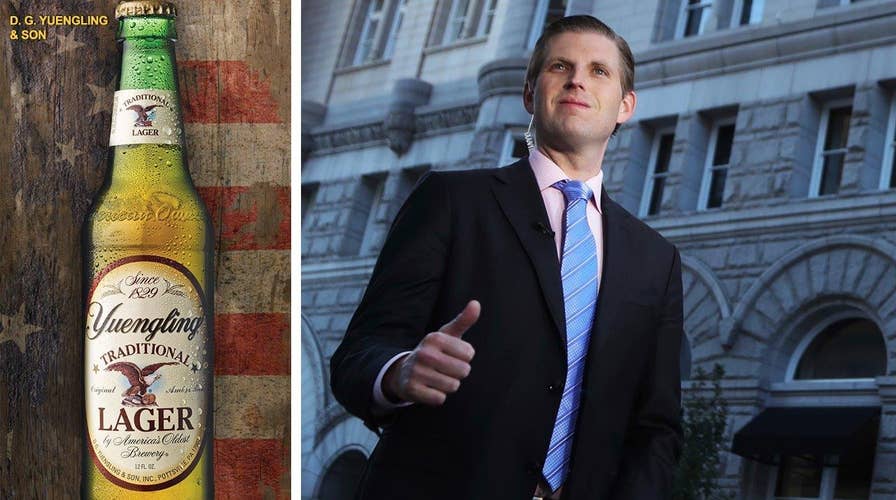Yeungling beer in Trump brew-haha
Features & Faces: Beer drinkers call for boycott after owner reportedly backs Trump
Employees at Labatt Brewing Company recently got some sobering news about a popular work perk.
In an Oct. 28 memo, Labatt, a Canadian-brand now owned by Anheuser-Busch InBev, announced the end of its free beer-for-life pension benefit for brewery retirees.
According to CBC, the long-standing benefit will be cut in half for current retirees in 2018. The whole program is set to to be phased out entirely by Jan. 1, 2019.
The news was met with discontent by employees and local unions who mourned the end of an era in the beer making industry.
"I just think it's nickel-and-diming of our retirees that put in a lot of work for many, many years," Edmonton, Canada-based union president Jim Stirr told CBC. "In the cost of doing business, it's such a small, small thing."
Labatt vice-president Lindsay King told employees that the decision was made a cost-cutting measure.
YUENGLING BREWERY OWNER THROWS SUPPORT BEHIND TRUMP, BEER FANS CALL FOR BOYCOTT
“The reason for the change relates to the rising overall cost of maintaining a full benefits package, including health care coverage for retirees,” King wrote in the memo. “A recent comprehensive review of all the cost management options has led us to conclude that discontinuing free beer is the best course.”
Stirr's union says a weekly allotment of free beer had been a bonus of working at the Edmonton brewery since plans to open the location were first announced in 1962.
SCIENCE CONFIRMS 'BEER GOGGLES' DO EXIST
Each current employee gets a Labatt gift card preset with the equivalent cost of 52 cases of 12 beers-- or one case per week. That’s based on part of the local union contract in Edmonton. Upon retiring, that allotment continued for life and if the Labatt pensioner died their spouse was then entitled to the same yearly free beer card.
Anheuser-Busch InBev is a publicly traded company that owns more than 400 beer brands worldwide. Labatt has been a part of the AB InBev family since the Belgian-owned Interview merged with the American brewery in 2008. The company reported $55 billion in revenue in 2015.

